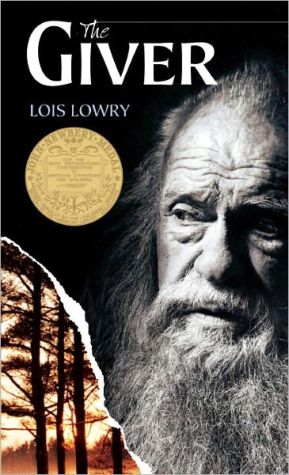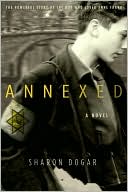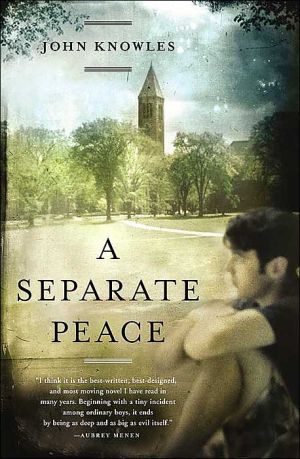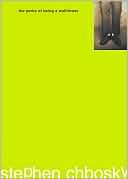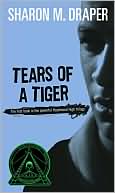The God Box
Paul, a religious teen living in a small conservative town, finds his world turned upside down when he meets Manuel—a young man who says he’s both Christian and gay, two things that Paul didn’t think could coexist in one person. Doesn’t the Bible forbid homosexuality? As Paul struggles with Manuel’s interpretation of the Bible, thoughts that Paul has long tried to bury begin to surface, and he finds himself re-examining his whole life. This is an unforgettable book on an extremely timely...
Search in google:
How could I choose betwen my sexuality and my spirituality, two of themost important parts that made me whole?High school senior Paul has dated Angie since middle school, and they're good together. They have a lot of the same interests, like singing in their church choir and being active in Bible club. But when Manuel transfers to their school, Paul has to rethink his life. Manuel is the first openly gay teen anyone in their small town has ever met, and yet he says he's also a committed Christian. Talking to Manuel makes Paul reconsider thoughts he has kept hidden, and listening to Manuel's interpretation of Biblical passages on homosexuality causes Paul to reevaluate everything he believed. Manuel's outspokenness triggers dramatic consequences at school, culminating in a terrifying situation that leads Paul to take a stand. Lambda Literary Award-winning author Alex Sanchez tackles a subject ripped from the headlines in this exciting and thought-provoking exploration of what it means to be both religious and gay.VOYAGay-positive Sanchez, author of Rainbow High (Simon & Schuster, 2004/VOYA December 2003), offers a story here that will resonate with Christian youth who are aware of their own or a close friend's gay orientation. Paul (nT Pablo), a senior at a small-town, Texas high school, has been dating his best friend, Angie, for years. When a new-and openly gay-student appears on the scene, Paul struggles with his attraction to Manuel, his inability to feel the same sort of attraction for Angie, and above all, the fundamentalist Christian equation of homosexuality with evil that he has internalized. Sanchez addresses theological interpretations head on but through credible use of teen dialogue and ponderings. Manuel is no less Christian in his convictions than is Paul and encourages his new friend to think beyond the anti-gay Biblical interpretation that Paul's pastor preaches. Angie is as saintly as her name suggests, but there are bullies in the story as well. Manuel's beating at the hands of some football players is stereotypical only because such scenes have been staple in so many young adult novels, but it rings true in terms of the context of this particular story and its setting. In the end, the protagonist not only owns his sexual orientation but can admit to his Mexican heritage and given name, Pablo, as well. Identity-sexual, ethnic, and religious-are each compelling to teens, and this novel treats all three openly and honestly.
\ VOYA\ - Francisca Goldsmith\ Gay-positive Sanchez, author of Rainbow High (Simon & Schuster, 2004/VOYA December 2003), offers a story here that will resonate with Christian youth who are aware of their own or a close friend's gay orientation. Paul (nT Pablo), a senior at a small-town, Texas high school, has been dating his best friend, Angie, for years. When a new-and openly gay-student appears on the scene, Paul struggles with his attraction to Manuel, his inability to feel the same sort of attraction for Angie, and above all, the fundamentalist Christian equation of homosexuality with evil that he has internalized. Sanchez addresses theological interpretations head on but through credible use of teen dialogue and ponderings. Manuel is no less Christian in his convictions than is Paul and encourages his new friend to think beyond the anti-gay Biblical interpretation that Paul's pastor preaches. Angie is as saintly as her name suggests, but there are bullies in the story as well. Manuel's beating at the hands of some football players is stereotypical only because such scenes have been staple in so many young adult novels, but it rings true in terms of the context of this particular story and its setting. In the end, the protagonist not only owns his sexual orientation but can admit to his Mexican heritage and given name, Pablo, as well. Identity-sexual, ethnic, and religious-are each compelling to teens, and this novel treats all three openly and honestly.\ \ \ \ \ Children's LiteratureThis novel about the anguish of a gay high school senior from a conservative Christian background is carefully plotted to cover related Biblical interpretations, high school bigotry, and self discovery in a realistic way. Paul has a girlfriend he has been friends with since grade school. But when a new student, Manuel, admits that he is gay and tries to be Paul’s friend, Paul feels threatened. Since adolescence Paul has felt “different” but does not want to admit it to himself. Especially since his faith condemns homosexuality. As Paul presents the Biblical arguments against homosexuality, Manuel counters with broader interpretations of the same passages. As Paul begins to admit the truth to himself and wants to share that truth, there is still the threat of exclusion by his peer group, his girlfriend, and his father, plus real physical threats from some high school students. Paul’s grandmother who visits from Mexico on important holidays, is a source of strength. This book will be of great help to those from a conservative religious background who grapple with being gay. The story is exciting and right on target. Reviewer: Carlee Hallman\ \ \ School Library JournalGr 9 Up\ Conservative, closeted, and a Christian, Paul has a girlfriend and sticks to the straight and narrow in his small Texas town. He's changed his name from Pablo to appear more American, and he keeps his mouth shut when it comes to hot topics, like who is gay and who isn't-until Manuel, who happens to be openly gay and Christian, wanders in on his turf. The new guy slips easily into the high school senior's mostly accepting circle of friends and his Bible-study group. Before he knows it, Paul finds himself spending more and more time around Manuel, who simultaneously bends his heartstrings and his belief system. The results are a boxing-ring-like philosophical and spiritual debate on the intersection of homosexuality and religion. Sanchez's cleverly diverse characterizations, conversational stylings, and sense of humor lighten this potentially daunting theme. Plus, the brewing romance between the pair-not to mention the dissolution of Paul's romance with his loyally lovable girlfriend-keeps the pages turning during even the most excruciatingly detailed Bible-passage battles between the two warring parties. These rightfully thought-provoking debates-most of which happen either in after-school Bible study or between Paul and Manuel-make Sanchez's latest an intense, necessary addition to the burgeoning LGBTQ teen lit canon.\ —Hillias J. MartinCopyright 2006 Reed Business Information.\ \ \ \ \ \ Kirkus ReviewsHispanic high-school senior Paul has struggled to overcome his attraction to boys, placing his prayers on slips of paper in an ornately carved "God box" in hopes the feelings will be taken away. He also dates best friend Angie and prays he will soon be sexually attracted to her. A new student arrives at their small-town Texas school, and Manuel comes out on his first day. He shocks the Bible Club by not only professing to be Christian but in more than holding his own in scripture-heavy debates. Manuel and Paul's friends start a GSA and deal with homophobia. After a six-month struggle and a tragedy, Paul realizes he can't love God or anyone if he doesn't love himself. Sanchez takes on the myth that homosexuals are ungodly in this sometimes melodramatic tale. Occasionally reading more like a manual on dispelling homophobic misinterpretations of Bible verse than a novel, this is still an important work about self-acceptance and the meaning of God's love. (Fiction. YA)\ \

